10 Must-See Architectural Wonders in
Edinburgh: From Historic Landmarks to
Modern Icons
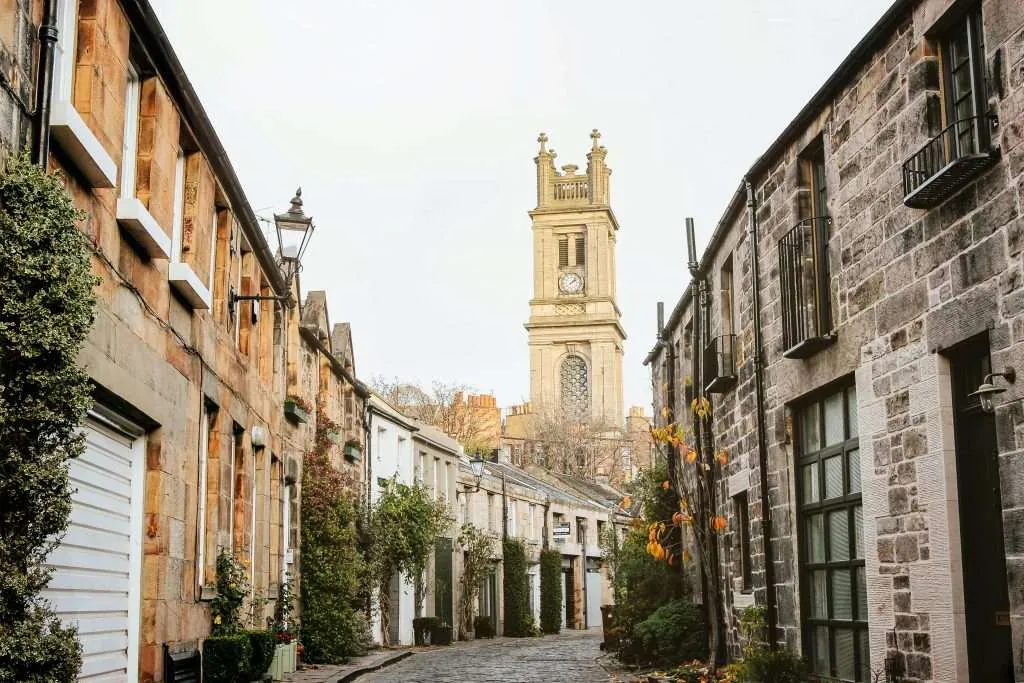
Edinburgh, Scotland’s storied capital, is a city defined by its architecture. Few destinations in the world offer such a seamless blend of medieval fortifications, Georgian elegance, and modern architectural design. Walking through Edinburgh’s streets and landmarks is to journey through centuries of architectural ambition, where every corner unveils a new chapter in the city’s evolution.
This article explores what makes Edinburgh’s architecture truly unique, provides a brief historical context, and highlights 10 must-see architectural wonders in Edinburgh that every visitor should experience. From iconic landmarks such as Edinburgh Castle.
The Distinctive Architecture of Edinburgh
The architecture of Edinburgh is defined by striking contrasts—ancient and modern, organic and formal, rugged and refined. These opposing forces shape the city’s skyline and streets, creating a rich visual and cultural identity.
Three key architectural themes define Edinburgh’s built environment:
1. Medieval Drama
The Old Town’s winding closes, looming tenements, and the unmissable silhouette of Edinburgh Castle reflect the city’s medieval roots and dramatic topography.
2. Georgian Refinement
The ordered beauty of the New Town with its sweeping crescents, classical facades, and symmetrical street plans, showcases some of the finest examples of Georgian architecture in Europe.
3. Modern Innovation
Bold, contemporary designs respect the city’s heritage while projecting confidence in Scotland’s future. These structures reflect how modern architecture in Edinburgh continues to evolve.
Together, these elements form a living narrative: a city that reveres its past yet never shies away from reinvention.
A Brief History of Edinburgh's Architecture
The foundations of Edinburgh’s architecture lie in the medieval period, when castles, churches, and defensive structures shaped the character of the Old Town. Its compact, vertical layout was driven by both protection and practicality, giving rise to the iconic Edinburgh skyline we recognise today.
The 18th century marked the beginning of the Georgian era, a time of enlightened urban planning that transformed the city. The development of the New Town introduced elegant terraces, neoclassical symmetry, and spacious streets—setting a new standard for European architectural design.
In recent decades, modern architecture in Edinburgh has emerged through projects like the Scottish Parliament Building, demonstrating how the city continues to blend contemporary design with historic surroundings. The result is a capital that honours its architectural heritage while embracing bold and thoughtful reinvention.
10 Must-See Architectural Gems in Edinburgh
Edinburgh is a city layered in history, culture, and design. From medieval castles and neoclassical squares to daring modern architecture, Scotland’s capital offers an exceptional range of built heritage. Below are ten must-see architectural landmarks in Edinburgh that capture its rich and evolving identity.
1. Edinburgh Castle
Dominating the skyline from its perch atop Castle Rock, Edinburgh Castle is both a fortress and national symbol. Dating back to the 12th century, it has witnessed royal intrigue, military strategy, and countless pivotal events. Its blend of medieval, Renaissance, and later architectural elements makes it one of Europe’s most impressive historic sites.

2. The Royal Mile
Stretching from Edinburgh Castle to the Palace of Holyroodhouse, the Royal Mile is the spine of the Old Town. This ancient street is lined with narrow closes, historic churches, and key civic landmarks such as St Giles’ Cathedral. A stroll here immerses you in the medieval architecture of Edinburgh.
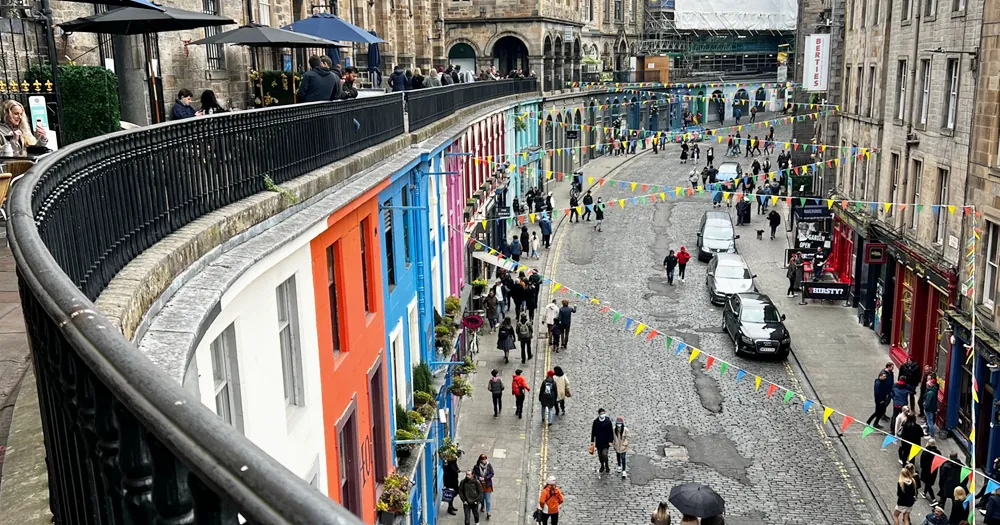
3. The Scott Monument
Located in Princes Street Gardens, the Scott Monument is a dramatic Gothic spire dedicated to Sir Walter Scott. Completed in 1846 and adorned with sculptures from his novels, it is one of the most recognisable monuments in Edinburgh. Climb its 287 steps for sweeping views of the city.
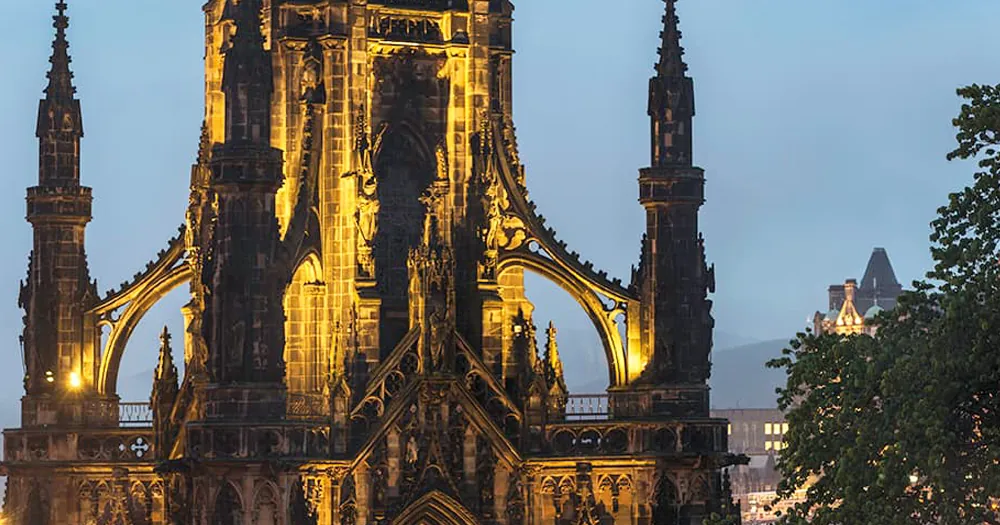
4. The National Museum of Scotland
A blend of Victorian design and contemporary architecture, the National Museum of Scotland offers a unique architectural journey. The original 19th-century central hall features ironwork and light-filled galleries, while modern extensions integrate seamlessly—an example of modern architecture in Edinburgh at its best.
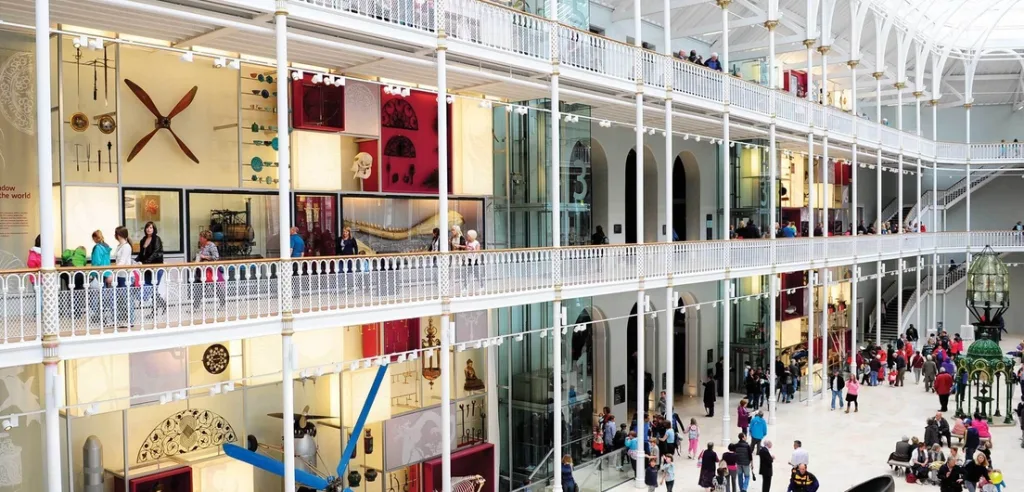
5. The Balmoral Hotel Edinburgh – 5-Star Luxury Since 1902
Opened in 1902, the Balmoral Hotel is one of the most iconic 5-star hotels in Edinburgh city centre. Designed by W. Hamilton Beattie, its famous clock tower is a landmark on Princes Street, just steps from Edinburgh Waverley Station. Inside, guests enjoy luxury rooms, fine dining, and a world-class spa.
Discover more at The Balmoral Hotel Edinburgh
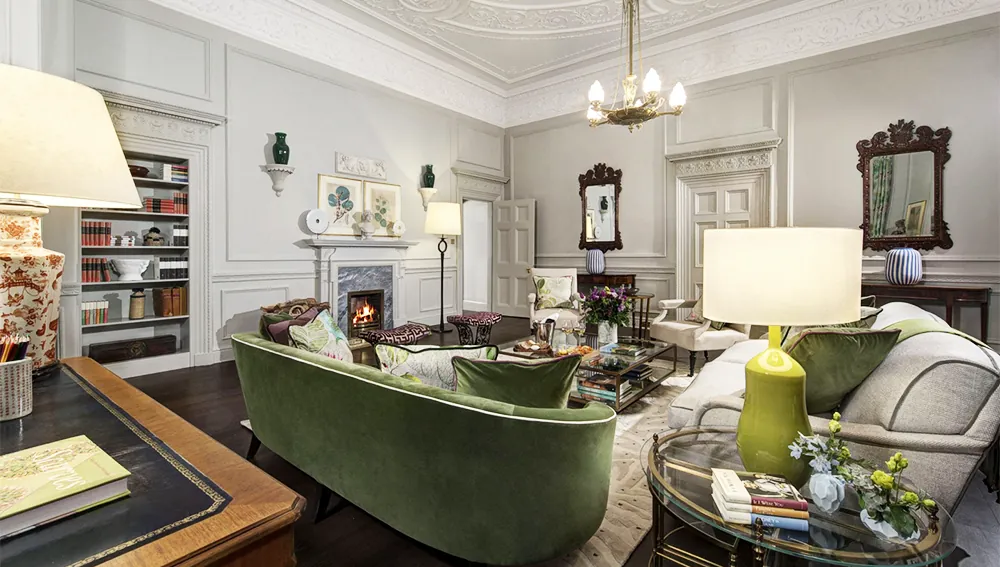
6. The Scottish Parliament Building Edinburgh – Modern Architecture Icon
Opened in 2004, the Scottish Parliament Building was designed by Spanish architect Enric Miralles. This striking modern landmark in Edinburgh combines organic design and natural materials, symbolising Scotland’s democratic spirit. Love it or loathe it, the Scottish Parliament is impossible to ignore.
Learn more at Scottish Parliament Edinburgh
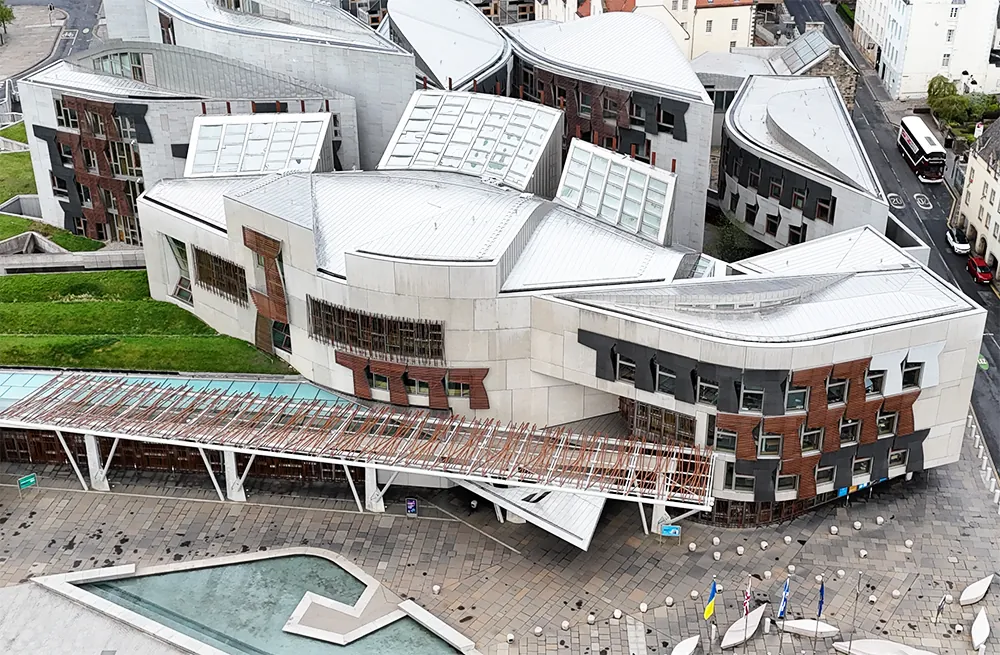
7. The Queen’s Gallery Edinburgh – Art at the Palace of Holyroodhouse
At the foot of the Royal Mile, the Queen’s Gallery forms part of the historic Palace of Holyroodhouse. Smaller than other Edinburgh landmarks, it offers elegant design and rotating royal art exhibitions, giving visitors a unique view of art, culture, and architecture.
Plan your visit at The Queen’s Gallery Holyroodhouse
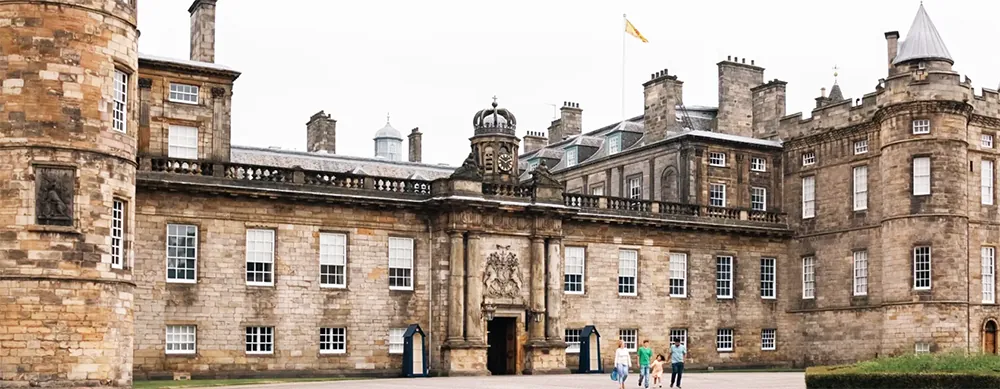
8. The Usher Hall Edinburgh – Iconic Concert Venue Since 1914
Opened in 1914, the Usher Hall is a landmark of Edwardian Baroque architecture in Edinburgh. Renowned for its world-class acoustics, it hosts performances from classical concerts to contemporary music. Today, it remains one of the city’s premier live music and cultural venues in Edinburgh.
Visit Usher Hall Edinburgh for upcoming events.
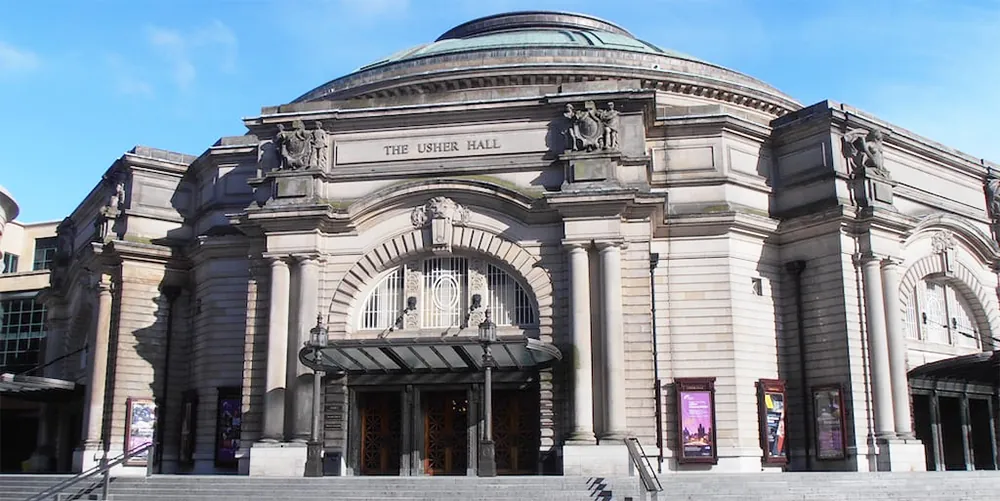
9. Dundas House Edinburgh – Georgian Architecture on St Andrew Square
Built in the 1770s by architect Robert Adam, Dundas House is one of the finest examples of Georgian architecture in Edinburgh’s New Town. Located on St Andrew Square, its elegant proportions and refined details reflect the city’s 18th-century style. Today, it serves as the headquarters of the Royal Bank of Scotland, symbolising both Edinburgh’s financial and architectural heritage.
Learn more about Dundas House Edinburgh.
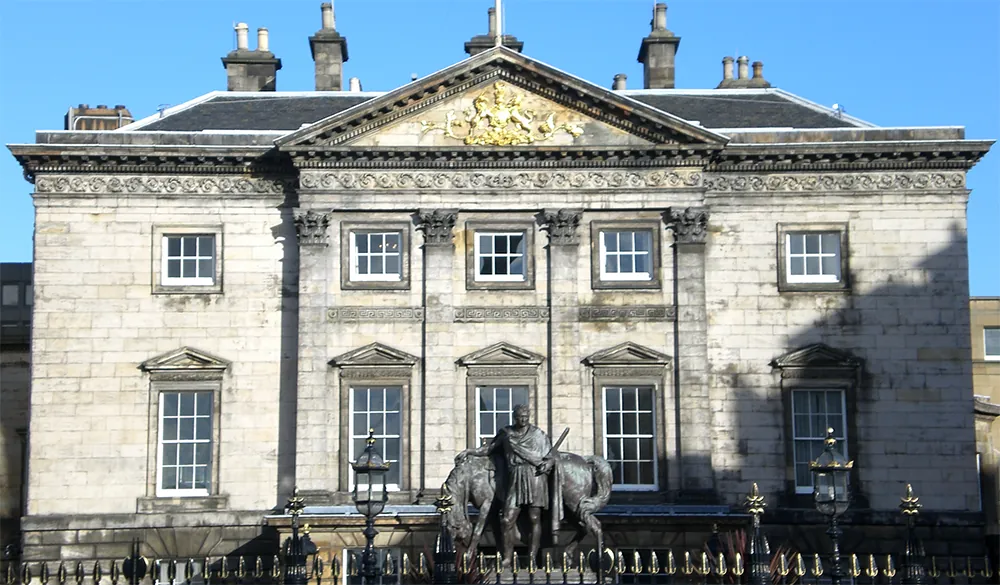
10. Arthur’s Seat Edinburgh – Holyrood Park’s Iconic Volcano
Rising above the city, Arthur’s Seat in Holyrood Park is an ancient extinct volcano and one of the most popular outdoor attractions in Edinburgh. Its summit offers sweeping views across the Old Town, New Town, and modern skyline, blending landscape and architecture into the city’s unique identity.
Plan your walk at Arthur’s Seat, Holyrood Park
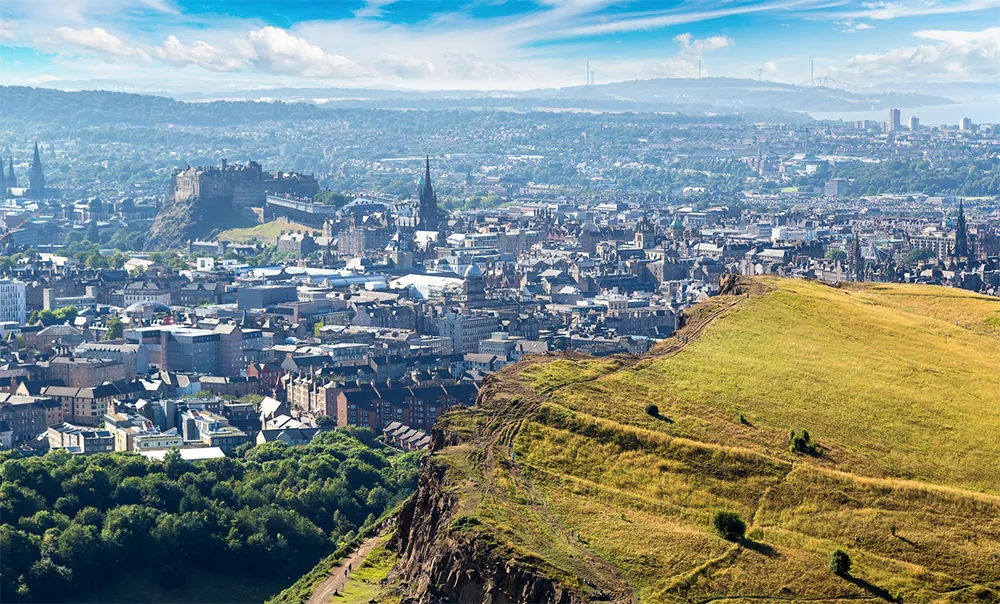
Edinburgh: A Living Architectural Story
Edinburgh’s architecture is more than buildings – it is the city’s history, culture, and identity carved in stone. From the medieval stronghold of Edinburgh Castle to the bold design of the Scottish Parliament Building, each landmark reveals a chapter of the capital’s story. Visitors can wander through the atmospheric Old Town closes, admire the elegance of Georgian New Town streets, or experience the innovation of modern Scottish architecture.
Blending past and present, Edinburgh offers travellers an unforgettable journey through time, making it one of the world’s greatest cities for architecture and design lovers.